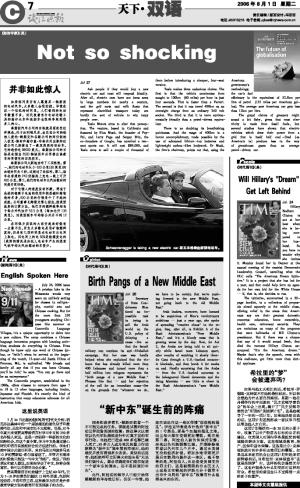Jul 27
Ask people if they would buy a new electric car and most will respond blankly. After all, electric cars have not been seen in large numbers for nearly a century, and the golf carts and milk floats that represent electrified transport today are hardly the sort of vehicle to win many people over.
Tesla Motors aims to alter that perception. The venture, based in California and financed by Elon Musk, the founder of PayPal, and Larry Page and Sergey Brin, the co-founders of Google, has unveiled a two-seat sports car. It will cost $89,000, and Tesla aims to sell a couple of thousand of them before introducing a cheaper, four-seat version.
Tesla makes three audacious claims. The first is that the vehicle accelerates from naught to 100km (60 miles) per hour in just four seconds. That is faster than a Ferrari. The second is that it can travel 400km on an overnight charge from an ordinary 240 volt socket. The third is that it is more environmentally friendly than a petrol-driven equivalent.
There is no doubting its breathtaking quickness. And the range of 400km is a heroic accomplishment, made possible by the use of advanced lithium-ion batteries and lightweight carbon-fibre bodywork. Dr Musk, the firm's chairman, points out that, using the American government's methodology; the car's fuel efficiency is the equivalent of 52.5km per litre of petrol (135 miles per American gallon). The average new American car gets less than 12km per litre.
The grand claims of greenery might sound a bit fishy, given that most electricity is made from fossil fuels, but several studies have shown that electric vehicles which draw their power from a grid that is itself half coal-fired (as America's is) produce less in the way of greenhouse gases than an average petrol-driven car.

